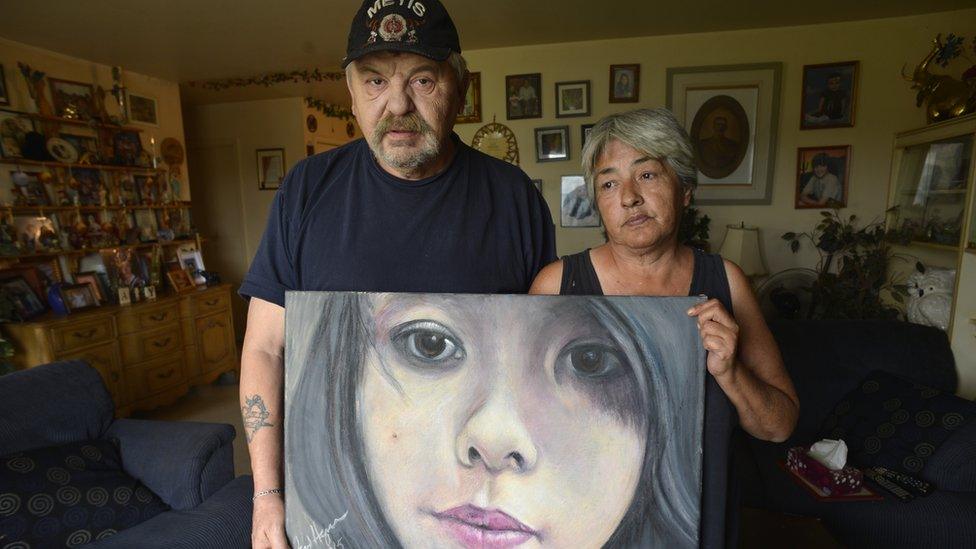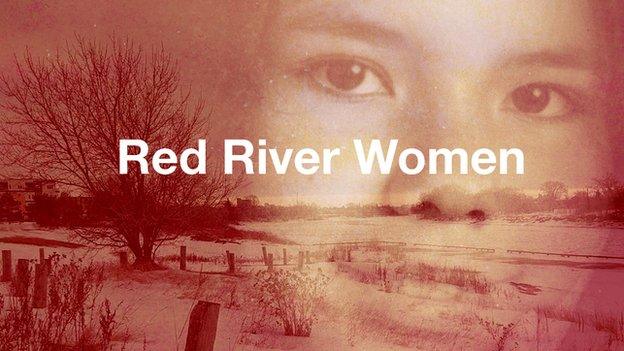Ottawa launches inquiry into missing and murdered indigenous women
- Published

Joe and Thelma Favel display a framed painting of their niece, Tina Fontaine, who was murdered and her body dumped in the Red River
Canada has launched an investigation into missing and murdered indigenous women that will cost nearly C$14m (£8m) more than expected.
Five independent commissioners will provide recommendations to deal with violence against the country's indigenous women.
Indigenous Affairs Minister Carolyn Bennett announced the inquiry at an emotional ceremony in Gatineau, Quebec.
The inquiry will last at least two years and cost up to $53.8m (£30.8m).
Though the federal government has launched the commission, each province has agreed to allow the commissioners to look at all jurisdictions, including whether local law enforcement or governments played a part.
The commission will also have the authority to summon witnesses to testify.
The investigation is expected to focus on the systemic causes of violence against indigenous women as well as recommendations on prevention.
A 2015 United Nations report , externalrevealed that young indigenous women in Canada were five times more likely to die under violent circumstances than non-Aboriginal women.
Families of victims have argued that police do not investigate missing indigenous women with the same scrutiny for cases involving white women.
The five commissioners are Marion Buller, British Columbia's first female First Nations judge; Michele Audette, a former president of the Native Women's Association of Canada; Qajaq Robinson, a Nunavut-born lawyer who focuses on aboriginal law; Marilyn Poitras, a law professor at the University of Saskatchewan; and Brian Eyolfson, a First Nations lawyer who served on the Human Rights Tribunal of Ontario.
The investigation is set to begin in September and will run through 31 December, 2018.

More from BBC Magazine

BBC reporter Joanna Jolly went on the trail of the murdered and missing to find out why so many of Winnipeg's Aboriginal women and girls have been killed. Read full article